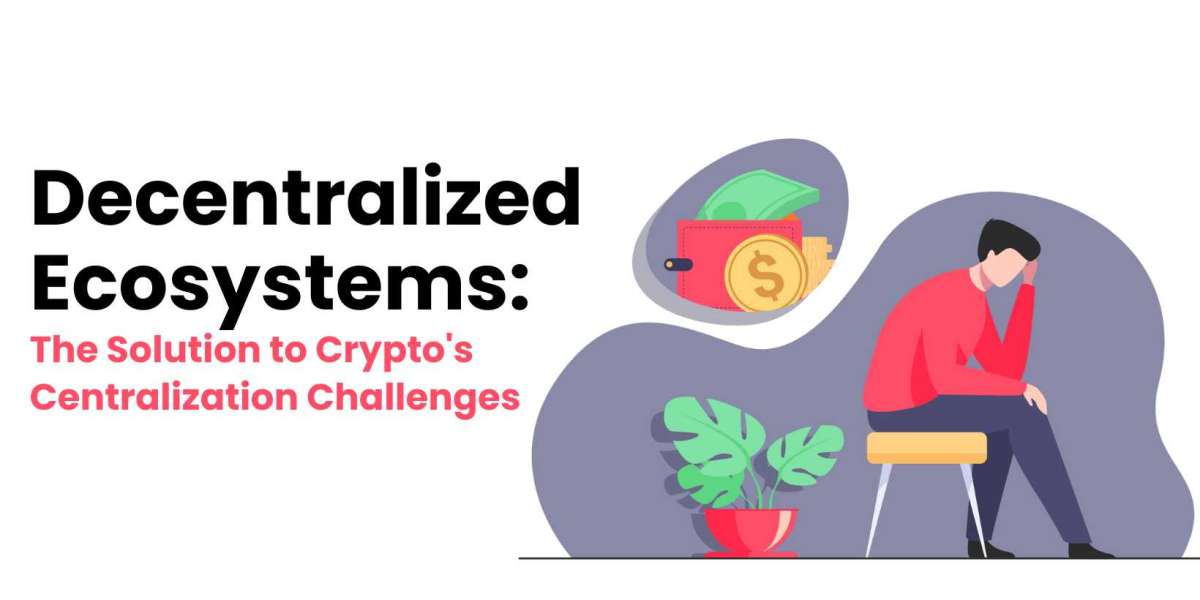The crypto space has grown at an unprecedented rate in the past few years, and while it has brought many exciting developments, it has also brought its fair share of challenges. One of the biggest problems facing the crypto space right now is centralization, particularly in the case of platforms that are touted as decentralized but are still subject to government control.
Additionally, there is growing pressure on banks from the US government, which threatens to stifle innovation in the industry. However, the emergence of d-ecosystem companies could be the key to addressing these issues.
Centralization is a significant issue in the crypto space, and it's important to understand why. One of the defining characteristics of cryptocurrency is its decentralization, which means that it operates on a peer-to-peer network without the involvement of intermediaries such as banks or governments. However, there are platforms that are marketed as being decentralized but are still subject to government control.
One such example is the USDC (USD Coin), a stablecoin that is pegged to the US dollar and backed by a consortium of companies. While it is marketed as being decentralized, it is still subject to the laws and regulations of the US government.
The USDC is not the only example of a platform that is centralized in practice. There are several others, including Tether (USDT) and Binance USD (BUSD), which are also pegged to the US dollar and are backed by a central authority. The problem with these platforms is that they undermine the very concept of decentralization, which is one of the key advantages of cryptocurrency. If these platforms are subject to government control, they can be shut down at any time, and the funds held on them can be frozen or seized. This is precisely the opposite of what cryptocurrency is supposed to achieve.
Another issue facing the crypto space is the pressure on banks from the US government. Banks are subject to strict regulations, and they are required to comply with anti-money laundering (AML) and know-your-customer (KYC) requirements. While these regulations are necessary to prevent criminal activity, they can also stifle innovation in the industry. Banks are often hesitant to work with cryptocurrency companies because they fear the potential legal and regulatory consequences of doing so.
However, the emergence of d-ecosystem companies could help to address these issues. D-ecosystem companies are decentralized companies that operate on a blockchain network. They are not subject to government control, and they are not reliant on intermediaries such as banks. Instead, they use smart contracts to automate their operations and ensure that they are transparent and trustworthy. D-ecosystem companies have the potential to revolutionize the way that we do business, particularly in the finance industry.
One example of a d-ecosystem company that is making waves in the finance industry is MakerDAO. MakerDAO is a decentralized lending platform that allows users to borrow cryptocurrency without the need for a bank or intermediary. It uses smart contracts to ensure that loans are transparent and trustworthy, and it is not subject to government control. MakerDAO has the potential to disrupt the traditional lending industry, which is heavily reliant on banks and other intermediaries.
Another example of a decosystem company that is addressing the challenges facing the crypto space is Chainlink. Chainlink is one of the decentralized oracle networks that enables smart contracts to connect to real-world data. It is designed to ensure that the data used by smart contracts is reliable and accurate, and it is not subject to government control. ChainLink has the potential to revolutionize the way that we use smart contracts, particularly in industries such as insurance and finance.
In conclusion, the crypto space is facing several challenges right now, particularly in the area of centralization. However, the emergence of d-ecosystem companies could be the key to addressing these issues








